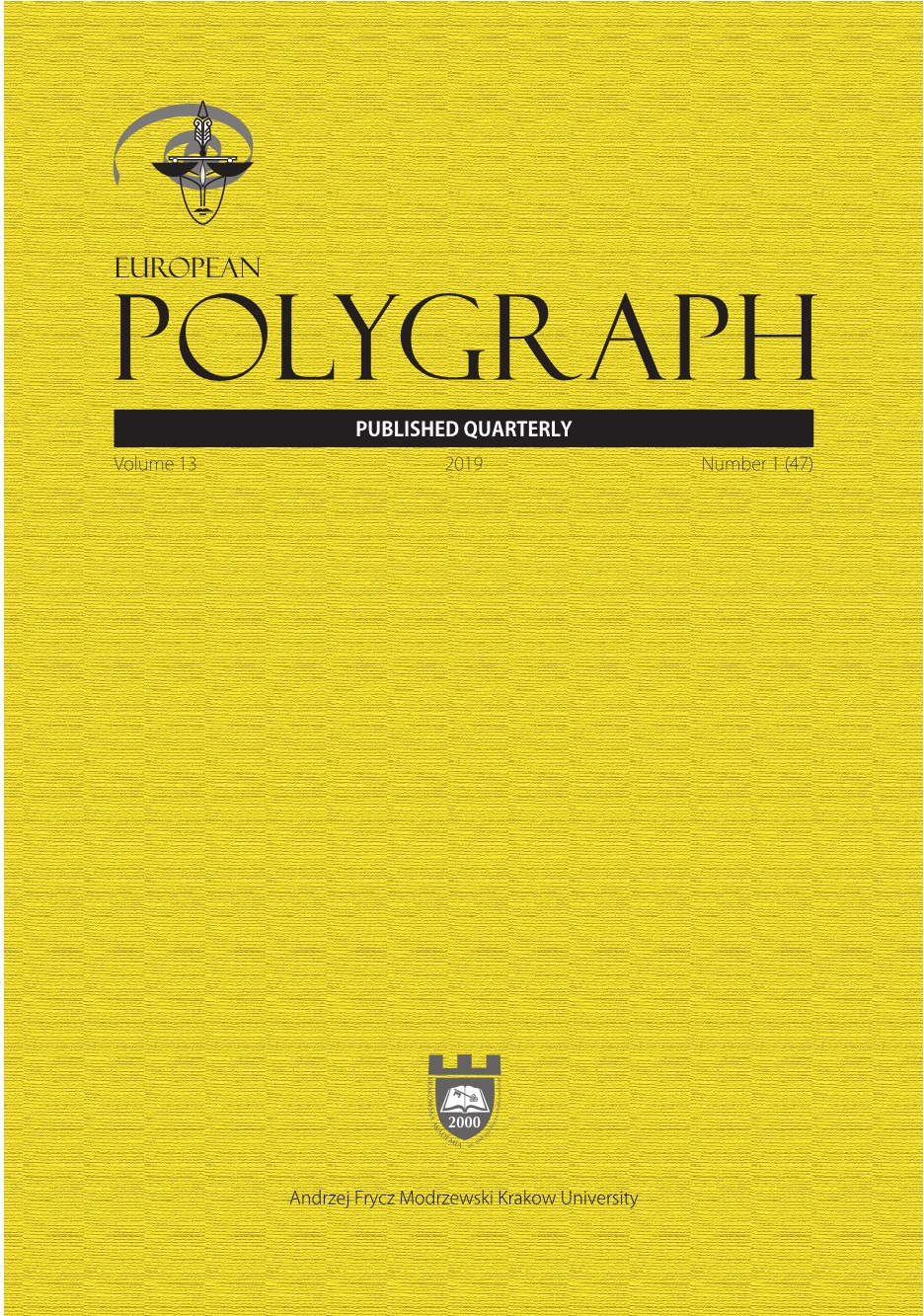Verbal and Non-verbal Symptoms of Deception in the Eyes of Policemen and Psychologists
Verbal and Non-verbal Symptoms of Deception in the Eyes of Policemen and Psychologists
Author(s): Jan Widacki, Natalia Mirska, Małgorzata WrońskaSubject(s): Psychology, Criminology
Published by: Oficyna Wydawnicza AFM Uniwersytetu Andrzeja Frycza Modrzewskiego w Krakowie
Keywords: detection of deception; verbal symptoms of deception; behavioural symptoms of deception; verbal cues of deception; behavioural cues of deception; interview; interrogation;
Summary/Abstract: The objective of the study was to test how selected respondents (psychologists and police officers) evaluate the diagnostic value of symptoms (cues) of deception listed in literature on the subject. To achieve that, 16 verbal and non-verbal (behavioural) symptoms listed in literature as most typical and most frequently accompanying deceit were ever located by 100 police officers and 101 psychologists (n=201). Their task was to group the symptoms according to the following categories: “oft en present”, “rarely present”, and “never present”. Both the groups of respondents claimed that in their work they have to frequently decide whether their interlocutors tell the truth or lie, and are convinced that they are capable of accurate detection of deception through their assessment of verbal and non-verbal (behavioural) symptoms accompanying lie. The latter belief is clearly refuted by the results of all known experimental studies. In fact, police officers and psychologists agreed that the most diagnostic symptom is “avoidance of eye contact” (143 respondents categorised it as often present). “High frequency of eye blinking” was considered least diagnostic of the symptoms, with only 47 respondents claiming that it is frequent, together with “head scratching” with 51 considering it as occurring “often”). Convergence of the respondents’ opinions was high. No significant differences between the occupational and age groups, and genders were discovered. The results of the study remain coherent with the results of studies by other authors maintaining that the skill of detecting deception in the interlocutor is determined neither by education, nor occupation, nor gender, nor the age of the person performing the detection.
Journal: European Polygraph
- Issue Year: 13/2019
- Issue No: 1 (47)
- Page Range: 25-40
- Page Count: 16
- Language: English

